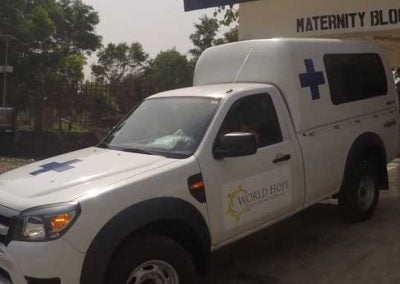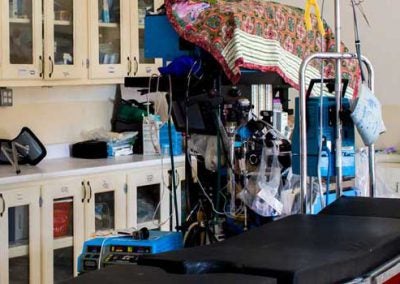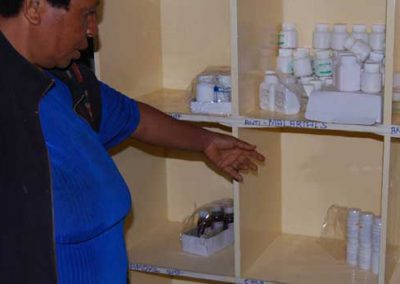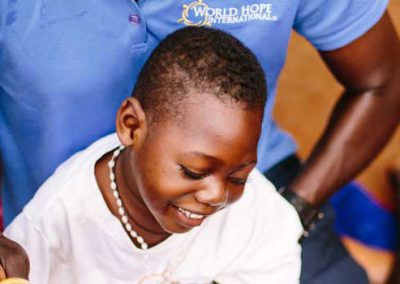Ambulance Services
Sierra Leone is one of the worst places for pregnant women, and delay in seeking care and lack of an effective and functioning emergency system contributes to this problem.
Project Information
Resources
Ambulance Service
Sierra Leone is one of the worst places for pregnant women, where 1,360 mothers die per 100,000 live births. According to the latest estimates from 2015, 1 in 17 mothers in Sierra Leone have a lifetime risk of death associated with childbirth. Delay in seeking care and lack of an effective and functioning emergency system contributes to this problem.
WHI provides ambulances to support the transport of patients—primarily pregnant women—from their homes to health centers and hospitals in the Bombali District. Recently, the Makeni Regional Hospital ambulance made four means of transport in one night—three of which were for delivery of twins! All lives were saved.
Getting women to the hospital faster is saving the lives of women and their babies in northern Sierra Leone.
Project Goals
The goal of the project is to get women to the hospital faster and decrease mortality rates for women and infants.
Previously, the goal was to decrease transmission of EVD in the Bombali District.
Expected Outcomes
- Increased number of women survive childbirth
- Increased infant survival rates
- (Prev) To safely and efficiently transport patients with suspected or confirmed EVD to the appropriate facilities
- (Prev) To transport the deceased for safe burial.
Discharge transports in WHI ambulances
Individuals reached at home & checked for Ebola
Maternity transports in WHI ambulances during the crisis
During the Ebola Crisis
UNICEF, DFID, the Sierra Leone Ministry of Health and Sanitation, The World Health Organization, and others worked to increase the number of treatment centres for confirmed cases of EVD as well as holding centres and village-level Community Care Centers (CCC) for suspected cases.
There were not sufficient ambulances for patients to be transported to CCCs or treatment centres in a timely fashion, furthering the spread of the disease. The situation was further compounded by ambulance drivers going on strike due to lack of payment. There were other challenges in the system as well, with ambulances returning to Makeni every evening and patients not being moved to the correct facilities to make efficient use of existing beds.
To address these challenges, World Hope International purchased and delivered five ambulances to Sierra Leone.
With the support and partnership of UNMEER, WHI operated a short-term ambulance service in Bombali District coordination with the District Ebola Response Center (DERC). All cases had to be properly managed, including through safe burials, until the epidemic ended.





